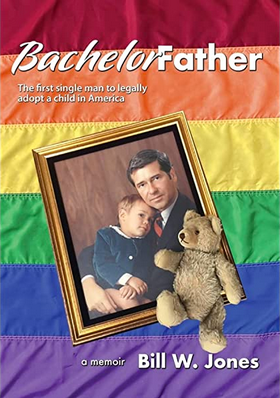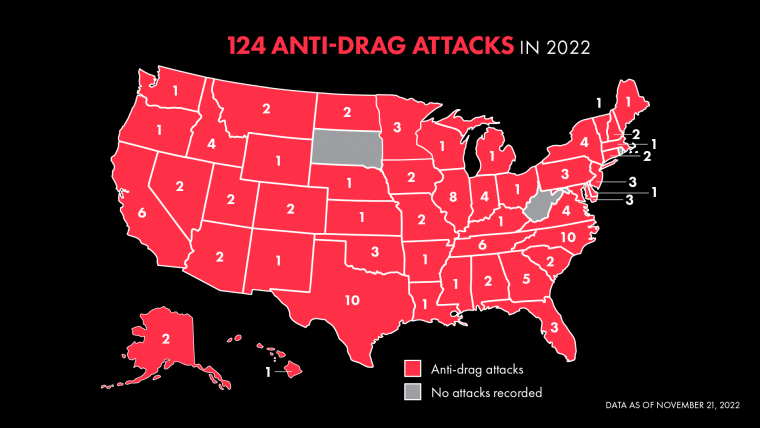Happening This Month at Marin’s Spahr Center
| TUESDAY DECEMBER 13this a Three-in-One Day! A collaboration between the Social Committee &The Spahr Center LGBTQ+ Senior Program Pride Flag Raising11:30 to noonat Novato Community Hospital Holiday Potluck12:30 to 1 pm&Bill Jones Book Reading1 to 2:30 pmat Margaret Todd Community Center see flyer here: |
 |
| Pride Flag Raising Novato Community Hospital invites our community to participate as our flag is raised over the hospital, proclaiming their support for us. Scheduled 11:30 to noon, it will be attended by hospital officials and the press. It is at 180 Rowland Way (beyond Staples.) |
| Holiday Potluck In place of our usual brown bag lunch at the monthly Second Tuesday in-person event at the Mgt. Todd Senior Center in Novato, the Social Committee and Spahr Senior Progam are inviting the community to bring food or a beverage to share for a potluck celebration of the holiday season. Please arrive on time if you want to participate in the potluck so we can then focus on Bill Jones & his book! |
| Bachelor Father: Bill JonesA Book Reading Join the Spahr Center Senior Program and the Social Committee as we host Bill Jones reading from his memoir, Bachelor Father: The first single man to legally adopt a child in America. Bill was an early member of Gay Men of Marin (GMOM, 23 years!), a teacher in Novato, owner of Sutro Baths in SF and he has hosted gay folks, families and kids in his home for many years to view the San Rafael Lighted Boat Parade at Christmastime. There will be plenty of time for questions and discussion. Watch for more details. The potluck and book readingtake place at our regular monthly Second Tuesday in-person event at the Margaret Todd Senior CenterDecember 13,12:30 to 1 pm socializing and 1 to 2:30, book reading.  |
| Again this year, Bill has invited the community to his home on the San Rafael Canal on December 17 at 6 pm for the annual Lighted Boat Parade.Watch for more details. |
| Check out the Community Notices section below for new entries about prescriptionless hearing aids and the new bivalent covid booster. |
UPCOMING EVENTSall events are free December 1World AIDS Day **A Gathering of Love & LossThe Spahr Center5 to 6:30 pm December 2Men’s Brown Bag Lunch **at Spahr Center’s Conference Room100 Nellen Ave. #100, Corte Maderasemi-  (ramp and elevator but no automatic door)noon to 1:30 (ramp and elevator but no automatic door)noon to 1:30December 13Pride Flag Raising11:30 to noon Novato Memorial Hospital Holiday Potluck12:30 to 1 pm Bill Jones Book Reading1 to 2:30 pmMgt Todd Senior Center, Novato see details above * Social Committee event, RSVP required;to RSVP or get on their email list, write to them atsocialcommittee@comcast.net;find a link to their calendar and flyers below ** See flyer below |
To join the Spahr Senior Groupon ZoomMondays, 7 to 8 pm, &Thursdays, 12:30 to 2 pm,click the purple button below the Butterfly Heart or here: |
| New participants are warmly welcomed!If you’re zoom-challenged, let me know and I’ll work with you! |
| Topical Thursdays12:30 to 2 pm December 1World AIDS DAYHow did the AIDS epidemic impact your life? This day, December 1, is World AIDS Day, marking the impact of the epidemic on the lives of virtually every member of our community and countless others around the world of every nation and identity. Even those of us who were not yet out or may never have known someone who died from AIDS has had their lives inexorably altered from it’s effects. The worst of it was a time of profound loss and grief and terror yet also a time of courage and love and community. Our lesbian sisters rallied to support the gay men’s community. We marched in the streets, lobbied in DC and state capitols, and demanded collaboration with our medical providers, forever changing politics and the healthcare system. And the epidemic is not over yet. Let’s honor this day by considering the many ways HIV/AIDS impacted us and the work we have yet to do. |
Living Room Mondays7 to 8 pm We share with each other about how we’re doing and have unstructured conversations focused on listening from our hearts and deepening community. |
 |
| As noted above, the Brown Bag Lunch is postponed to December 2 because the Spahr Center was closed for the holiday weekend. |
 |
The Northbay LGBT+ Senior Social Committee has been consistently offering fun events to offset the boredom of the pandemic. Everyone born in any month will be celebrated in that month’s email – including your birthday if you’ll let them know when it rolls around! To sign up for their emails or register for events, click here. |
| Coronavirus Updates A new Bivalent Covid Vaccine is available and it is recommended that most seniors get that shot. Contact your health provider for more information. The Spahr Center has coronavirus rapid home test kits & masks and they are available for free in the office – 150 Nellen Avenue, Suite 100, Corte Madera 94925; 415/457-2487. The office is open 10 am – 3 pm weekdays. Only vaccinated people may come to the office and masks must be worn inside the building. Any staff person can direct you to the kits. This is a great resource we are pleased to offer, please don’t hesitate to get these kits! In order to keep track of new infections, the County asks that we report self-test results here. To see Marin County’s latest pandemic information, click here. The mask recommendations of the Mask Nerd – an aerosol scientist who studies mask effectiveness – are featured in this article and highly informative video. May we all be safe and well! |
| Community Notices |
A recent “bivalent” covid booster is available and is especially advised for older people and those with immune-compromised conditions, etc. Contact your health provider for more information. Hearing Aids will now be available without prescription at places like Costco, Walmart and Walgreens at a saving of upwards of $3000. You can learn more by clicking here. |
| The Spahr Center’s Food Pantry is open to seniors who need support in meeting their nutritional needs. We want to help! Items such as fresh vegies, fruit & meats, eggs and dairy, prepared meals, pasta, sauces, and canned goods are delivered weekly to people who sign up. Glen & Robert, our Pantry Managers, do a terrific job in trying to meet the individual needs and preferences of the people we serve. |  |
| Contact The Spahr Center for more information: info@thespahrcenter.org or 415/457-2487Space for your Community Notice here. Email Bill with information at bblackburn@thespahrcenter.org. |
 |
| Vivalon Resources for Seniors Whistlestop, now renamed Vivalon, offers many resources for us seniors, now listed in this easy-to-print one-page guide. Access to rides, food, classes, activities, resources, referrals, and more. Membership not required for most classes and services during the pandemic. Some in-person events are being planned. To get Vivalon’s listings, click here. They also provide access to resources including rides for older adults. Please note: there is a 3-week registration process for the ride program so register now if you think you may need rides in the future. Click here for their website. The Jackson Cafe has great specials, a roomy dining room, small tables and big round tables for groups. Open 11:30 to 1:45; $8 for members, $10 for guests, with takeout readily available. You can find their daily changing menu and more information here. |
| Building Community in the Midst of Sheltering-in-PlaceSee old friends and make new ones! Join us!The Spahr Center’s LGBT Senior Discussion Groupscontinue everyMonday, 7 to 8 pm& Thursday, 12:30 to 2 pm on zoom |
 |
| To Join Group by Video using Computer, Smart Phone or TabletJust click this button at the start time, 6:55 pm Mondays / 12:25 pm Thursdays:Join GroupAlways the same link! Try it, it’s easy! |
| To Join Group by Phone CallIf you don’t have internet connections or prefer joining by phone,call the following number at the start time,6:55 pm Mondays / 12:25 pm Thursdays:1-669-900-6833The Meeting id is 820 7368 6606#(no participant id required)The password, if requested, is 135296#If you want to be called into the group by phone, notify Bill Blackburn at 415/450-5339 |
| California Department of Aging ResourcesThe CDA has a website that is packed with information and resources relevant to the lives of seniors in our state. From Covid-19 updates to more general care for age-related health issues, access to legal assistance to getting home-delivered meals to help with housing, you may well find answers to your questions by clicking: here. |
| Adult and Aging Service’s Information and Assistance Line, providing information and referrals to the full range of services available to older adults, adults with disabilities and their family caregivers, has a new phone number and email address: 415/473-INFO (4636) 8:30 am to 4:30 pm weekdays473INFO@marincounty.org |
Questions? Assistance? Suggestions? We have resources and volunteers for:grocery deliveryfood assistanceproviding weekly comfort calls to check in on youplus more! Bill BlackburnLGBTQ+ Senior Program Managerbblackburn@thespahrcenter.org415/450-5339 |












